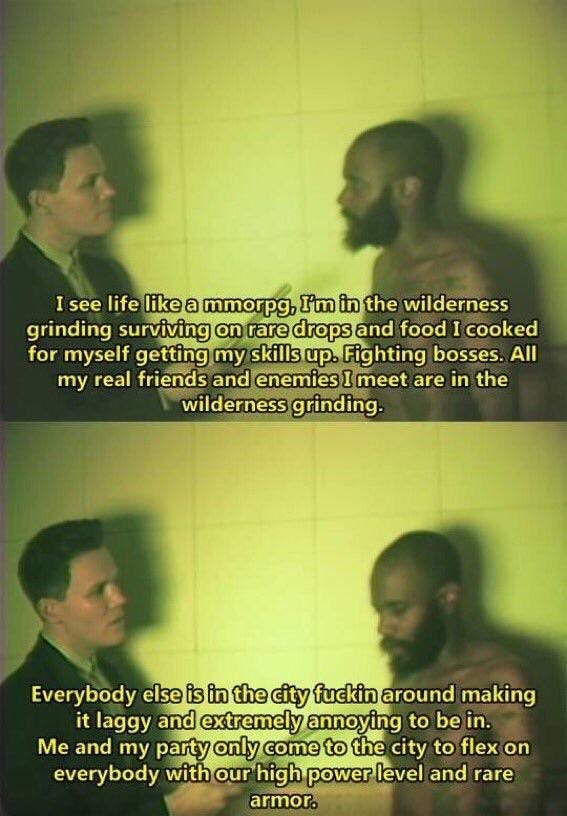What is the point?
A forgotten draft.
We may see in our first stories the origin of man, the time of myth; whence tells us what is, what ought to be. But now what has happened to this world, wherein our ancestors once lived—and yet which for us is not history but more akin to literature. Know that these ‘mere words’ shaped worlds, indeed shaped this world; yet also shaped by it, in which dialectic is reality thereby reproduced. See the line between nomadic and static peoples, their energy economy is reflected and explained by the myths with which time begins and ends. And what are our myths today? See Steven Pinker, that sensitive artist and international embarrassment; everything is getting better, he explains the world as that which goes from good to bad: it is called progress. Of course, some have lost hope. This myth no longer vibes with the world they live in; it has become a dead hypothesis.
In the absence of any alternative, the outcome is usually a depression, an extended existential crisis; typically resolved not by positive action but the inertia of economic circumstances, etc. One is dragged involuntarily through life, which makes each difficulty a far greater burden; how tough to carry when all is hate. Arbeit macht frei, they say—no, it merely puts off fate. What are we waiting for? Some choose not to wait any longer. And anyway, why should we? Hedonism is enough for some, yet taken to extremes is simply suicide in slow motion; yet to be sure, heroin is better than a noose. Or perhaps your beliefs prohibit it, your family needs you, you are too afraid—these are one and the same; it is only something negative, some lack, which holds you back. Perhaps if you had easy access to a gun, some night on a sudden impulse you might well …
What is necessary is a positive meaning to life, some direction of movement—that is, a point outside ourselves. This is a mundane statement because it is true, only that rendered so simply it is also impossibly vague. Partly this is purposeful, in that this ‘point’ can never be grasped or determined by another. You may place this point in another, as with a wife or child. But another cannot force you to place it there, at best you might act along, say out of fear—beware, this may sometimes lead to schizoid traits. To begin, you might open yourself to the very possibility of there being a point; of there being this type of point. To do so entails a basically religious attitude towards life, call it ‘magical realism’ if you wish. You must believe in the absolute uniqueness and importance of your own life. This is radical indeed today, a delusion of grandeur. But perhaps all the best things are diagnosable as illnesses. Depression, for instance, with which we have here been indirectly concerned, is a positive warning—it grows because we have become hollow.


